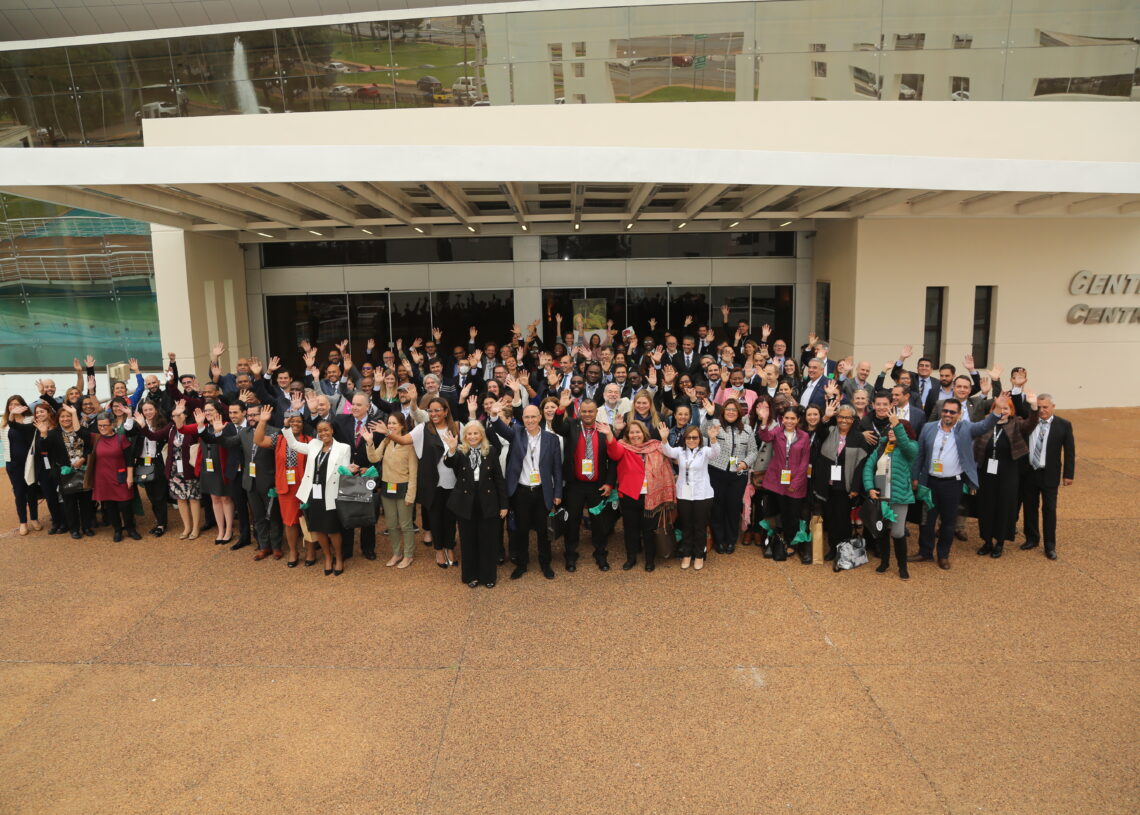Although at a theoretical level the debate on drugs has advanced a lot in recent years, it is necessary that the discourse is transformed into better results for Latin American and Caribbean policies and for the well-being of its citizens; this is one of the main threads that were discussed this year at the COPOLAD III Annual Meeting. More than 43 drug agencies and over 130 policy makers met face-to-face and virtually in Asunción, Paraguay, with the intention of sharing good practices and evidence to support policy practice.
The week began with a technical seminar that addressed the urgency of connecting border and prison spaces in the fight against drug trafficking, organised by the European programmes Eurofront, PacCTO and COPOLADIII.
On 22-23 June, the Annual Meeting of the EU-Latin America-Caribbean cooperation programme on drugs took place. The budgetary difficulties to address social policies on drugs, the need to improve intelligence services against drug trafficking finances and money laundering, the importance of the labour insertion of people with problematic consumption, the impact of the fight against drugs on the environment or the new “Regional Initiative Team Europe for Latin America and the Caribbean: Justice and Security Partnership” were some of the key topics of the meeting.
Delegations highlighted the session’s effort to aim for policy coherence on drugs with the framework of the 2030 Agenda for development and the challenges posed by the programme in relation to the integration of scientific evidence and innovation in public policy.
On Friday 24, COPOLADIII participated in the High Level Meeting of the CELAC-EU Coordination and Cooperation Mechanism on Drugs where it presented its study on “Women and Drugs” and highlighted the need to take alternative measures to the incarceration of women for minor drug offences. “It is necessary to carry out the necessary reforms to reduce the female population deprived of liberty for micro-trafficking, with enormous human costs of various kinds, caused by harsh punitive policies disproportionate to women,” said the Paraguayan minister responsible for anti-drug policies, Zully Rollón.






